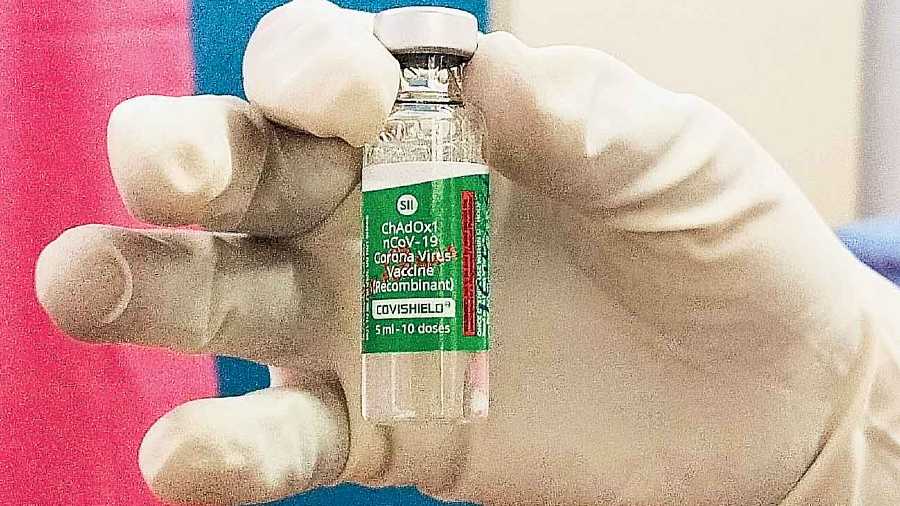The BJP government, which has dismissed all calls to allow Covid-19 booster vaccination doses, is now coming under heavy pressure from frontline workers including the police, army and the health sector who say they need the extra protection to carry out their work.
The clamour comes as the first cases of the new highly mutated Omicron variant in India were reported in India by the health ministry. Two men, aged 66 and 46, in Karnataka, who had returned from abroad, have tested positive for the variant. So far, the men have shown no “severe symptoms,” said Health Ministry spokesman Lav Agarwal, who added that primary and secondary contacts of the men are being traced.
The Indian Medical Association has said in a statement that “we demand that healthcare workers should be given a booster dose” and that the Union government “prioritise the vulnerable population,” including immunocompromised citizens for a third shot.
Wealthy Indians aren’t waiting to get booster shots in this country and have been flying out in droves, mainly to the UAE, but also further afield to destinations like London and the US, to get their jabs. Recently, the UK and the US have both relaxed regulations and now allow non-resident visitors to be vaccinated there.
The government’s also facing pressure from Delhi High Court which asked the government to come up with a timeline for the rollout of booster shots if they were considered necessary. The court warned that the government shouldn’t base its decision on financial considerations.
“The decision should not be based on economics because no doubt it is an expensive proposition and the government is doing it free for most,” the two-judge bench said.
“Maybe that is the consideration that the government does not want to give at this stage, but then we don’t want to land in a situation that we are overly conservative on this, and we land up in a situation like we were in the second wave,” the judges said.
The Serum Institute of India has also added its voice to the calls for booster doses by making an application to the Drug Controller General of India to permit the administration of a third dose of Covishield. The Serum Institute described booster shots as “the need of the hour” in its application to the Drugs Controller General of India (DCGI).
It is “a matter of right to health of every individual that they should not be deprived of (a) third dose/booster dose to protect themselves in this pandemic situation,” the Serum Institute said, according to The Press Trust of India.
The country now has adequate stocks of the vaccine to administer booster shots, the Serum Institute said. “There is no shortage of Covishield in our country and the demand for a booster dose is increasing day-by-day from the people who have already taken two doses in view of the ongoing Covid-19 pandemic and emergence of new strains,” Prakash Kumar Singh, a senior Serum Institute executive, said in the application.
Health experts say the discovery of the Omicron variant has added fuel to the debate in India about whether booster doses are necessary at all or whether they should be speeded up and offered to everyone, even though there are millions who have not received even one jab yet. According to the health ministry, 84.3 per cent of the adult population has received a single vaccine dose while 49 per cent has been double-jabbed.
The government has steadfastly stonewalled all demands to start delivering booster shots. Its views have been backed by experts like Dr Randeep Guleria, director of the All India Institute of Medical Sciences (AIIMS), who argued a few days ago that, “the vaccines are holding up and we’re not seeing breakthrough infections causing a surge in our admissions.”
Seropositivity is also very high in many parts of the country and that, “all these suggest that, as of now, we really don’t need a booster dose. We are well-protected and should focus on getting more people to get the first and second doses,” Guleria said.
The central government has told Parliament that the National Technical Advisory Group on Immunisation, among other official bodies, is looking at the arguments in favour of administering a booster jab.
The discovery of the Omicron variant could also force the government to redouble its efforts to attract global vaccine-makers like Pfizer to this country. Pfizer, which uses mRNA technology, is reckoned to be the most effective of the anti-Covid-19 vaccines globally. Pfizer also has been extremely successful at upping production and is estimated to have delivered 80 per cent of the vaccinations in the European Union and 74 per cent in the US, according to the Financial Times.
However, Pfizer has been laying down tough terms to countries around the world, including demanding immunity from civil legal suits in the event that the vaccine causes any harm to people, something that the Indian government has been reluctant to agree to.
India saw a slight rise in fresh Covid cases with new infections reported at 8,954 on Wednesday, up from 6,900 cases detected on Tuesday.
Various states are stepping up Covid-19 monitoring. Six samples from people who tested positive for Covid-19 in Delhi, and another six samples from Maharashtra, have all been sent for genome sequencing to determine the variant.
Passengers now arriving at Delhi’s Indira Gandhi International Airport from those countries deemed to be “at risk of Omicron” are being faced with long lines and costly Covid tests due to new rules that came into effect Wednesday.
The World Health Organization expects to have more information on the transmissibility of the new Omicron variant of the coronavirus within days, its technical lead on Covid-19, Maria van Kerkhove, said in a briefing. The WHO says that the variant, which has already been detected in more than two dozen countries, is likely to spread further internationally, leading to “very high risk of infection surges” that could have “severe consequences in some situations.”










